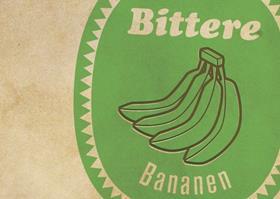
The five leading food retail operators in Germany have been heavily criticised in a new report published by the German branch of pressure group Oxfam, which said it had uncovered evidence of 'massive violations' of labour rights at Ecuadorean banana plantations supplying the companies.
The 'Bitter Bananas' report draws together conclusions from a study carried out by Oxfam Germany during the course of 2010 and 2011, during which time it apparently interviewed 63 workers on plantations and at packhouses run by Dole, Noboa and Reybanpac in Ecuador.
According to the organisation, which also spoke to 54 workers at other plantations supplying those companies, the five German supermarket companies – Edeka, Rewe Group, Aldi, Lidl (Schwarz Group) and Metro Group – were responsible for alleged inhumane working conditions at the sites involved, including low wages, health risks and the violation of trade union rights.
The author of the study, Oxfam's director of corporate social responsibility Franziska Humbert, said the statements received from banana industry workers in Ecuador suggested working conditions there were 'intolerable and exploitative'.
'Wages are a particular problem, as they are insufficient to support a family,' she explained. 'The average net wage is around US$237, well below the nationally defined poverty line of US$544 for a family of four.'
In addition, the report found, the use of pesticides was endangering the health of plantation workers and nearby residents.
'Although Ecuadorean law forbids it, dangerous pesticides are still being sprayed on the fields from airplanes,' Humbert noted.
Workers at one Noboa plantation apparently said they had not received protective clothing to keep them safe from pesticides and other hazards.
On the issue of trade union rights, meanwhile, Oxfam said the problem of employees allegedly being laid off because of their union membership remained on the agenda.
In conclusion, Oxfam called on the supermarkets themselves to honour their social commitments and ensure the fair treatment of suppliers and employees.
Similarly, it said, the German government needed to act and make it the law for minimum social standards to be safeguarded along the supply chain, thus ensuring that unfair buying practices were prohibited.
According to Planet Retail, Edeka, Rewe, Aldi, Lidl and Metro together control around 80 per cent of the German grocery market, with sales in 2010 totalling €114.23bn.



